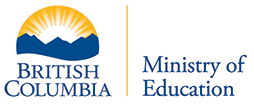
Unit Plan: Indian Residential Schools
Interdisciplinary / Grade 5
Big Ideas
Canada’s policies and treatment of minority peoples have negative and positive legacies.
Concepts:
- Policy
- Consequences
Essential Questions
Students will keep considering…
- What is the impact of government policy?
Evaluative Criteria
Summative Assessment
- Students will provide either a written or oral response that address the BIG Idea that Canada’s policies and treatment of minority peoples have negative and positive legacies.
Formative Assessment
- Class discussion
- Teacher check in
- Group work
- Think pair share
- Timeline
Monitoring Progress
N/A
Resources
WEBSITES
- First Nations Education Steering Committee Grade 5 Resource
- 100 Years of Loss
- Truth and Reconciliation Canada
- Aboriginal Worldviews
TEXTS
- Shi shi etko by Nicola Campbell
- Shin Chi’s Canoe by Nicola Campbell
- Project of the HeartSpeaking Our Truth by Monica Gray Smith
- Speaking Our Truth Teachers Guide
- Gladys We Never Knew
- I Am Not a Number by Jenny Kay Dupuis
- First Peoples and European Contact: Pearson Education: Student Resource
- First Peoples and European Contact: Pearson Education: Teacher’s Guide
Reflection
How will teachers and their students reflect on and evaluate the completed project?
Teacher Reflection
- What aspects of the unit went well?
- What did students struggle with?
- What did you struggle with?
- What would you add/revise the next time you taught this unit?
- Were there any unintended outcomes?
- Were students engaged?
Downloads
Stage 1 – Desired Results
Big Ideas
Canada’s policies and treatment of minority peoples have negative and positive legacies.
Concepts:
- Policy
- Consequences
Transfer Goals
Students will be able to independently use their learning to…
- Understand that the impact affected Indigenous peoples of Canada.
- Understand how government policy can affect other people in different settings/situations.
Meaning
Students will understand that…
- N/A
Students will keep considering…
- What is the impact of government policy?
Acquisition
Students will be skilled at…
- Differentiating between intended and unintended consequences of events, decisions, and developments, and speculating about alternative outcomes (cause and consequence)
- Making ethical judgments about events, decisions or actions that consider the conditions of a particular time and place and assessing appropriate ways to respond (ethical judgment)
CONTENT
Students will know…
- Government policies and actions
- The Indian Act
- What effects residential schools had on Indigenous families and communities
- Numbered treaties with Indigenous peoples
- Reduction or relocation of Indigenous peoples on reserves
Which Core Competencies will be integrated into the unit?
Communication
- Acquire, interpret, and present information
Critical and Creative Thinking
- Question and Investigate
Personal and Social
- Relationships and cultural contexts
First People's Principles of Learning
The unit will make connections with:
Learning involves recognizing the consequences of one’s actions.

The following resources are made available through the British Columbia Ministry of Education. For more information, please visit BC’s New Curriculum.
Big Ideas
The Big Ideas consist of generalizations and principles and the key concepts important in an area of learning. The Big Ideas represent what students will understand at the completion of the curriculum for their grade. They are intended to endure beyond a single grade and contribute to future understanding.
Core Competencies
 Communications Competency
Communications Competency
The set of abilities that students use to impart and exchange information, experiences and ideas, to explore the world around them, and to understand and effectively engage in the use of digital media
 Thinking Competency
Thinking Competency
The knowledge, skills and processes we associate with intellectual development
 Social Competency
Social Competency
The set of abilities that relate to students’ identity in the world, both as individuals and as members of their community and society
Curricular Competencies & Content
Curricular Competencies are the skills, strategies, and processes that students develop over time. They reflect the “Do” in the Know-Do-Understand model of curriculum. The Curricular Competencies are built on the thinking, communicating, and personal and social competencies relevant to disciplines that make up an area of learning.
Additional Resources
First People's Principles of Learning
To read more about First People’s Principles of Learning, please click here.
For classroom resources, please visit the First Nations Education Steering Committee.
